Once the Proms season is under way, you soon regret dissing the prospectus. Connections become apparent, long-term programming a merit, especially this weekend just gone, which took us from elegies and meditations on two world wars heavenwards at the halfway point - Britten's cautious but still cathartic optimism at the end of the masterly Sinfonia da Requiem - and up to the heights of Beethoven's "Choral" finale and Mahler's Eighth. It was also a fabulous demonstration of how a world can be captured as much in a five-minute piece as a 90-minute so-called “Symphony of a Thousand”.
We began with disrupted serenity in the ever-impressive Roundhouse (★★★★) as George Benjamin co-ordinated an offstage trumpet, strings off to the right and four querulous flutes in front of him in Ives’s The Unanswered Question. It’s odd that a place with such a dome, a mini Albert Hall, should lack any reverberation at all, but that mostly suited the biting, whiplash playing within the London Sinfonietta to perfection. Especially so in Stravinsky’s Symphonies of Wind Instruments which concluded a fascinating first half, the first clarinet’s knife-thrusts sounding more extraordinary than ever, textures perfect, dancing rhythms taut.
Stravinsky dedicated his work to the memory of Debussy, but the end of the First World War must also have been haunting him; it was to the forefront in an enthralling sequence. What could not have been anticipated was the untimely death two weeks earlier of Oliver Knussen - London Sinfonietta stalwart, original Proms programmer, composer of myriad pinpoint sound worlds and Benjamin’s mentor. He would have been in the hearts and minds of many of the players and audience members as well as that of his talented pupil. 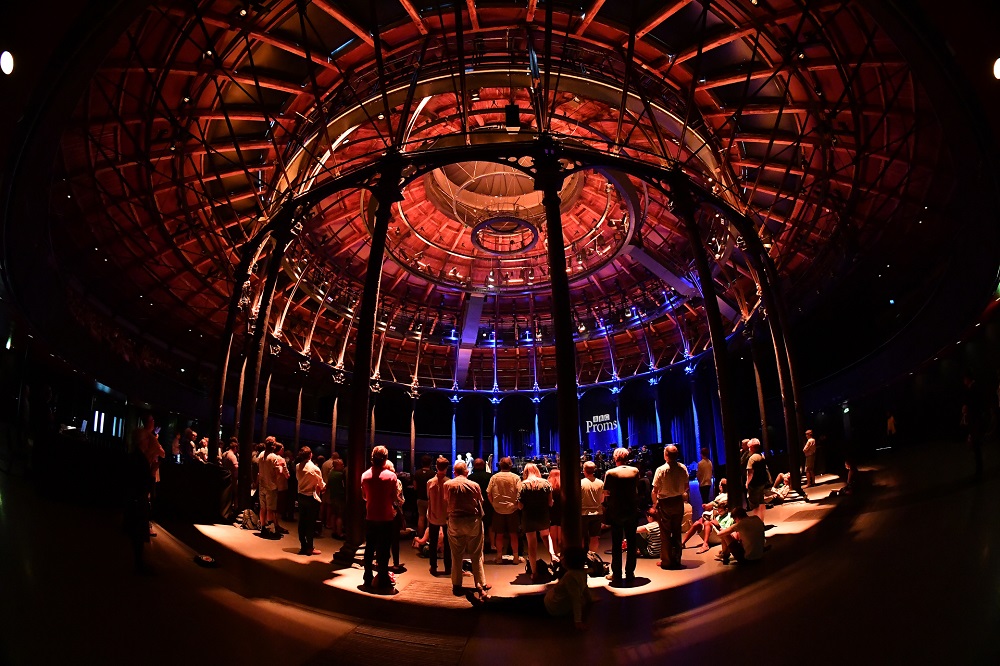
Unquestionably the masterpiece of the four was the last minutes of inhumanity, great Georg Friedrich Haas’s mini opera condensing the words of two doctors and horrifying stage directions from Karl Kraus’s epic wartime drama The Last Days of Mankind. Rare among contemporary composers, Haas sets language hauntingly, the harp accompaniment in the early stages begging odd comparisons with Strauss's Prologue to Ariadne auf Naxos before the conjured murderscapes turn the music darker. National treasure Susan Bickley delivered this, and all else, with perfect poise and commitment – a riveting performer. 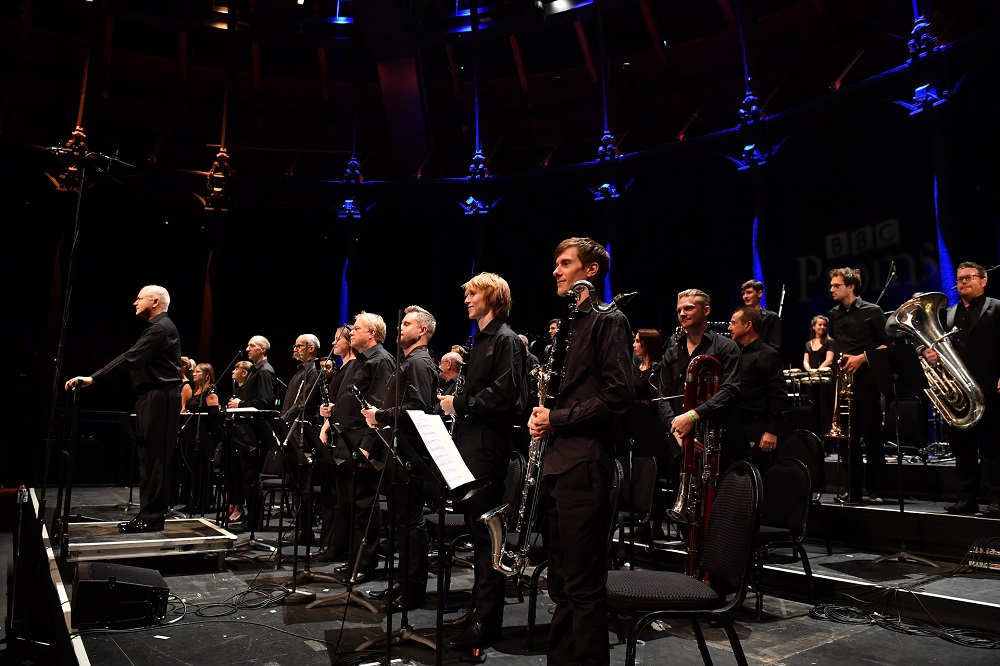
The commemorative theme continued at the start of the evening Prom (★★★) back in the bigger colosseum with a BBC commission, Latvian Ēriks Ešenvalds’s setting of Longfellow’s A Shadow, the words crystal-clear from the BBC Proms Youth Choir (pictured below) conducted by Simon Halsey. Ešenvalds is a younger John Rutter on the choral scene, hugely popular, able to write catchy melodies and gratifying choirs with his textures, but – as with many of the songs in the Latvian Choral Festival finale to be covered soon on theartsdesk – tending to a pop-song memorability that edges on the banal. The conclusion, though, with humming and whistling, was hugely effective. 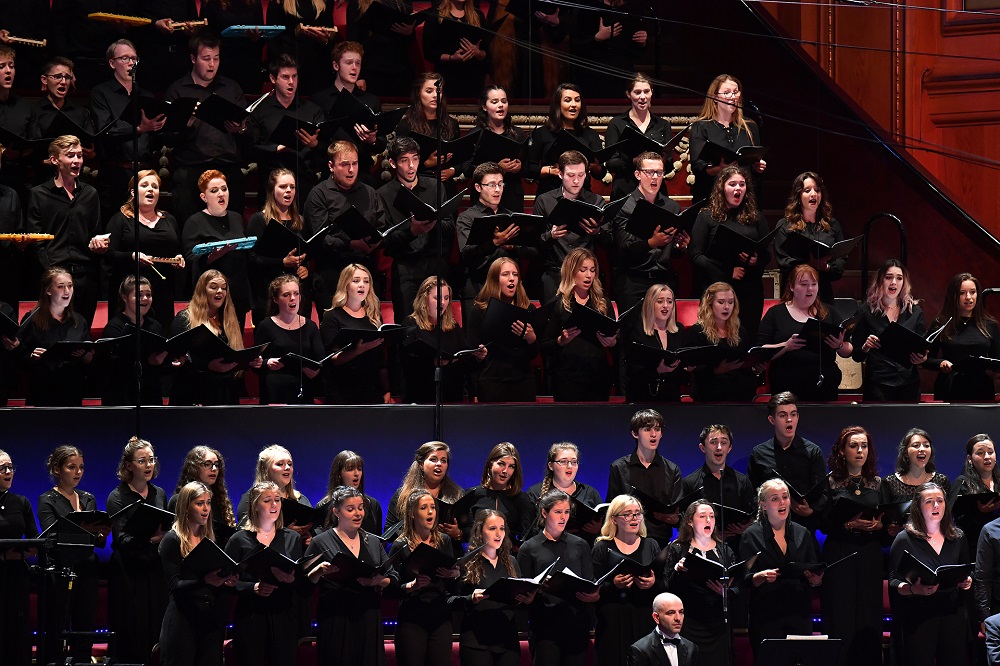
Donald Runnicles pulled it off with the World Orchestra for Peace (pictured below). But Beethoven’s Ninth is more ruthlessly exposing of absolute togetherness, and I can’t remember more disconcerting results from a professional orchestra in the first two movements. Or rather, something like it when I last heard this peculiar entity under Gergiev – listed as its “conductor”, a mockery when you recall his conducting against the Georgians in South Ossetia and for Putin in Palmyra – at the Proms in Rimsky-Korsakov’s Scheherazade. Now, as then, there’s a problem: put 17 leaders/concert masters in the first and second violins, and what kind of cohesion do you expect? Especially on limited rehearsal time and an event which, if I understand the orchestra’s biography aright, is only the 20th of its kind since 1998. This was frighteningly diffuse, as close to an orchestra not really being an orchestra at all as I’ve ever heard. 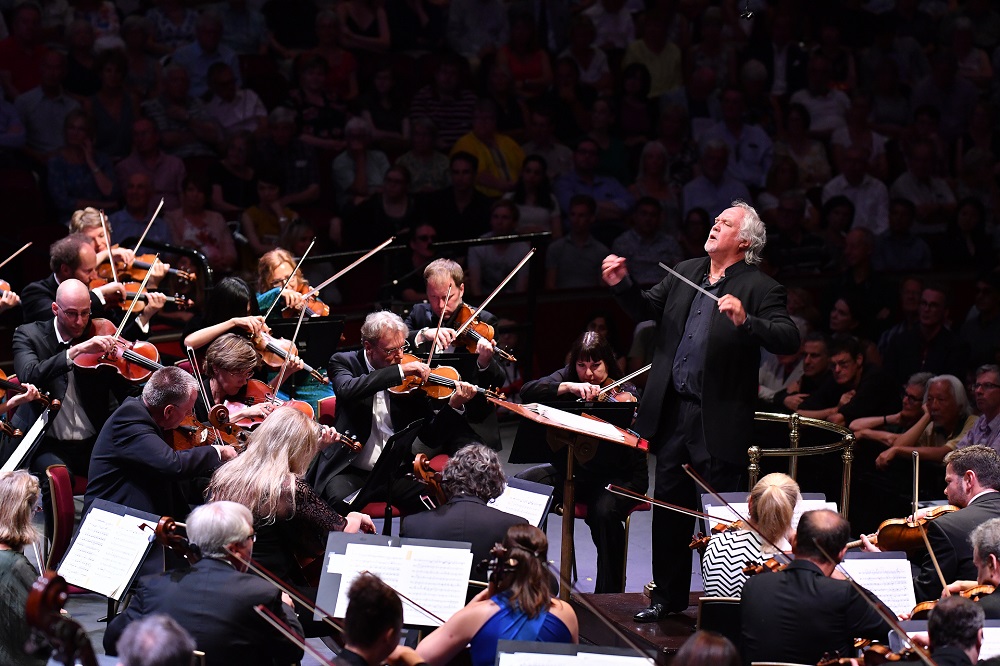
That the out-of-phase orchestral nightmare couldn’t be ascribed to the capricious Albert Hall acoustics from where I was sitting, centre back, was amply demonstrated by the perfect togetherness of the BBC National Orchestra of Wales the following evening (★★★★★), luminously transformed into the Mahler orchestra in excelsis by its Danish Principal Conductor Thomas Søndergård. 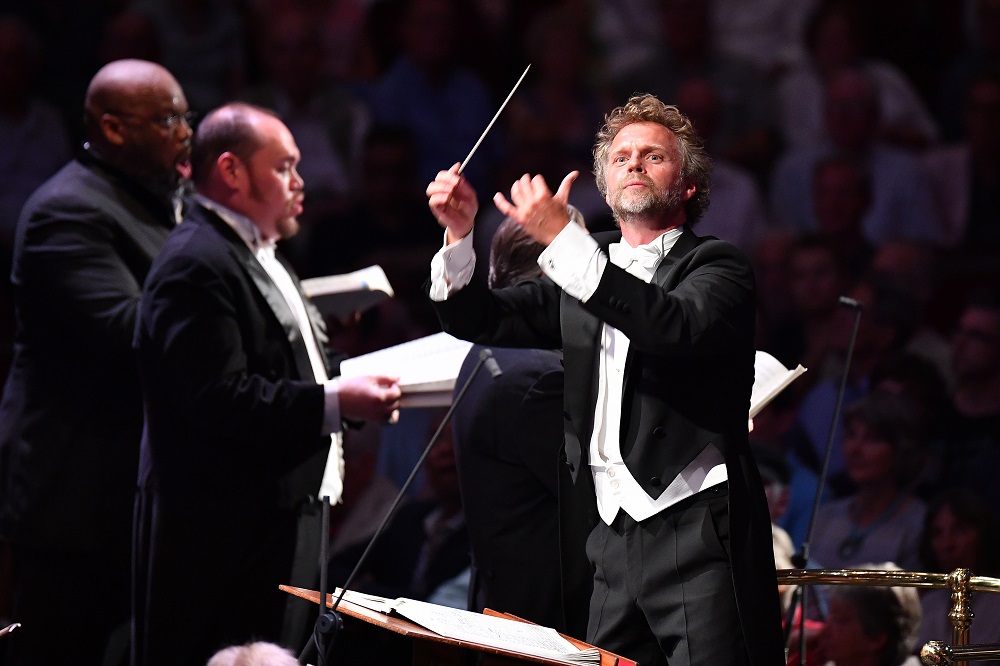
Tempi were helpful to the soloists, too, not overtaxing the magnificent Quinn Kelsey and Morris Robinson in their opening Part II solos (pictured above with Søndergård), allowing an expression of the text at which the already great Tamara Wilson (pictured below) excelled. It’s rare to have a so-called second (actually first equal) soprano of equal calibre, the thrilling Camilla Nylund; in fact there can’t ever have been a better solo line-up for this work.
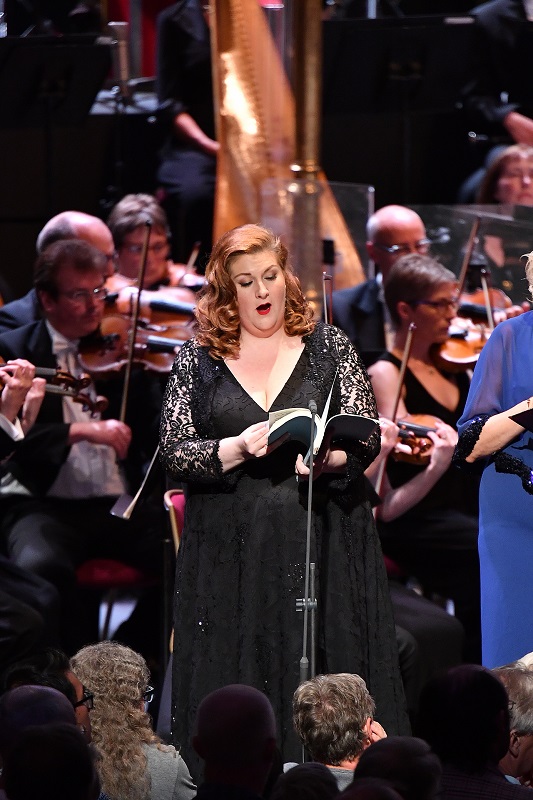
If there was any flaw, it was that from where I was sitting, the offstage brass weren’t detectable as such. But their platform companions recovered from a few dodgy moments in the first movement to etch their lines alongside top-notch woodwind with radiant clarity throughout the Faust drama. Organist Jane Watts didn’t stint on the full glory of the Albert Hall’s king of instruments, spine-tingling on the symphony’s very first pedal-plus-chord. And it should go without saying that there are few sounds more impressive than the combined forces of the BBC National Chorus of Wales, BBC Symphony Chorus and London Symphony Chorus, as clear of intent under Søndergård as the orchestra. This is the ultimate Proms spectacular, and all involved did it proud.
- BBC iPlayer listening available for 28 days: Proms at...Roundhouse here, Prom 9 here and Prom 11 here
- Read more classical music reviews on theartsdesk













Add comment